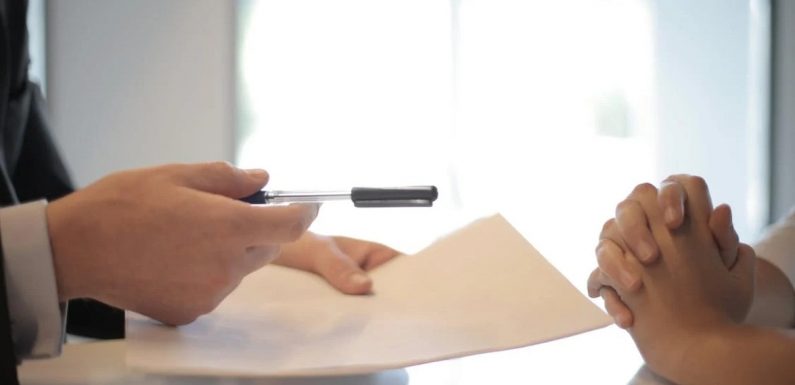
The process of selecting a candidate for a specific position consists mainly of submitting an application, a CV/resume, and documents. How your resume looks makes a big difference and can impact your chance to get invited to a job interview. In some cases, the job interview can consist of conducting and testing the candidate’s knowledge and skills.
A job interview is an important step for any employer, so it should be approached seriously. The goal of the interview is to eliminate unsuitable candidates and select candidates who best meet the employer’s requirements. During the interview, they will ask you some questions. That way, they will find information that will convince them that you are a suitable candidate.
1. Find out everything about the company
First of all, you need to carefully study all the information about the company you are applying to. This is an essential first step to prepare for the interview. What values do they represent? What are their successes? What makes them stand out from the competition? Search for the name of the company online. That way, you might find a newspaper article, a website, or any other information that can be useful during the conversation. Use what you learned during the interview. You will show that you are well informed and prepared. They will notice that you care about the job position you are applying for.
2. Dress appropriately
The first impression is important, especially in a formal situation like job interviews. The appearance must be appropriate for the industry and the position; professional and neat. Even when the company allows casual attire, the interview is a formal occasion. Avoid clothes that catch the eye; exaggeration of details; and excessive jewelry. Stick to some basic interview dress codes. Dress the way you feel comfortable, and match the colors and style to your personality, without exaggerating it. You should stick to the classics rather than current fashion trends. Darker colors emphasize seriousness to a greater extent than light ones. Make sure your shoes are clean. The hairstyle must be neat and the make-up appropriate.
3. Practice introduction
One of the most important things to prepare for an interview is your introduction. While they did find some information about you from the resume, they will only get the full impression when they meed you in the person. Also, when it comes to resumes keep in mind that Instead of helping you secure a position, embellishing your resume can disqualify you as a candidate.
When it comes to in-person interviews, eye contact, a smile, and a firm handshake must not be missing. All this says a lot about you, above all about your basic culture. Introduce yourself with both your first and last name. Your next sentences should focus on key information about you, so that you stand out at the start. The introduction should be short and clear enough to keep the interviewer interested. A brief overview of your abilities is sufficient, and you can also add some interesting information. They don’t need to be essential for the job but reflect your personality, such as your hobbies. Be aware of your non-verbal communication. It is not pleasant when you reveal anxiety, nervousness, excitement, or confusion. Of course, some nervousness, and even discomfort, is normal because the job interview itself is a stressful situation. However, try to keep your nerves under control.
4. Be punctual
Being late for an interview can send a negative message to the employer. It can easily affect the quality of the interview. There will not be enough time left until the arrival of the next candidate. The interview will be interrupted because employers often take care that the candidates do not meet each other. That is to protect their privacy as much as possible. Get to the interview location a few minutes early. Your apologies will mean little if you cut short the allotted interview time. However, do not arrive too early because the employer probably has other commitments besides interviewing.
5. Prepare questions for the interview
During the interview, listen carefully to everything the interviewers have to say. Don’t interrupt them while they are speaking, but wait until you have the floor. However, it’s not just the employer who asks the questions at the job interview; you can ask them, too. A job interview is an opportunity to ask your potential employer some questions about the job. These should not be questions to which you could have found answers online while preparing for the interview. Ask more concrete and specific questions about the job position, company values, and work ethic. This way, the employer will get the impression that you are well-informed. You will showcase your ability to think independently and ask the right questions. Prepare one or two meaningful questions and leave a good impression on the interviewer.
Interviews can be very stressful. Following the steps mentioned above can significantly help you to feel much more prepared, and exude confidence in the discussion. As already stated, during the interview you must show your experience and knowledge. You need to behave professionally and show enthusiasm for being in the company. Also, you must show your true professional self. Follow the tips in this article and you will feel less pressure and stress during the interview.
